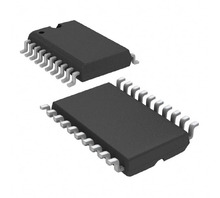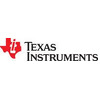Manufacturer Part Number
CD74ACT374M96
Manufacturer
Texas Instruments
Introduction
The CD74ACT374M96 is a high-speed CMOS logic octal D-type flip-flop with tri-state outputs.
Product Features and Performance
High-speed CMOS technology
Octal D-type flip-flop with tri-state outputs
Capable of operating at clock frequencies up to 110 MHz
Low propagation delay of 11.2ns at max load
Positive edge-triggered flip-flop
Standard 74ACT Series
Non-inverted outputs
Product Advantages
High current output drive capability of 24mA each for high and low levels
Low quiescent current of 8 µA for power efficiency
Input capacitance of 10 pF for minimized input loading
Wide operating temperature range suitable for industrial environments (-55°C to 125°C)
Compatible with bus-oriented systems through tri-state outputs
Key Technical Parameters
Clock Frequency: 110 MHz max
Max Propagation Delay: 11.2ns @ 5V, 50pF
Current Output High, Low: 24mA, 24mA
Voltage Supply: Between 4.5V and 5.5V
Quiescent Current: 8 µA
Input Capacitance: 10 pF
Operating Temperature: -55°C to 125°C
Quality and Safety Features
Meets stringent quality standards of Texas Instruments
Manufactured under rigorous safety protocols
Compatibility
Surface-mount 20-SOIC package compatible with standard PCB assembly techniques
Interoperable with other 74ACT Series devices and industry-standard logic families
Application Areas
Data storage and retrieval systems
Communication systems
Industrial control systems
Microprocessor support
Product Lifecycle
Currently active product with ongoing support
No indication of nearing discontinuation; replacements and upgrades should remain available
Several Key Reasons to Choose This Product
High-speed operation suitable for demanding applications
Low power consumption benefiting battery-operated devices
Robust temperature tolerance for industrial and automotive use
High drive strength for driving heavy loads
Reliable performance from an industry-leading manufacturer
Versatile use across multiple applications due to tri-state outputs
Proven compatibility with existing systems and logic standards




 CD74ACT541MG4Texas Instruments
CD74ACT541MG4Texas Instruments CD74ACT563MHAR
CD74ACT563MHAR CD74ACT374EHarris CorporationIC FF D-TYPE SNGL 8BIT 20DIP
CD74ACT374EHarris CorporationIC FF D-TYPE SNGL 8BIT 20DIP